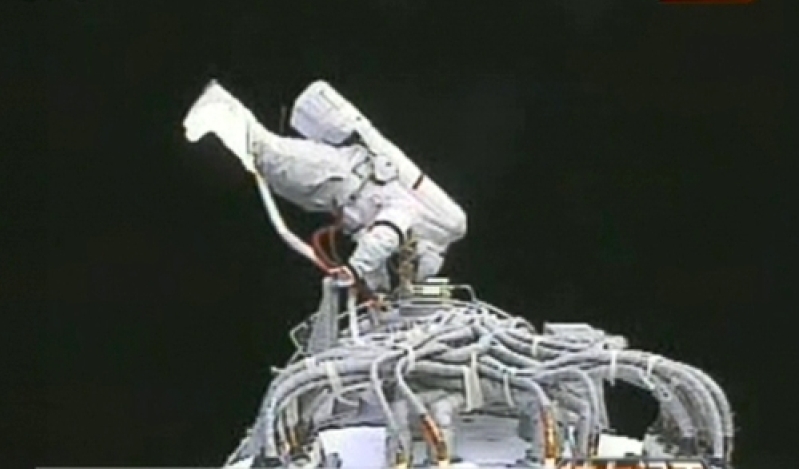

In the morning of Sept. 29th, China’s sacred vessel, Shenzhou VII, was launched into space orbit, accomplishing the nation's first spacewalk. Ever since its launch on Sept. 25, the world has been paying close attention, in particular, the overseas Chinese.
During their 68-hour voyage, one of the three astronauts Zhai Zhigang spacewalked for the first time in the history of China space exploration, which symbolized the nation's first step of successfully entering space, follow in the footsteps of U.S. and Russia.
Furthermore, this accomplishment will serve as a catalyst for Chinese’ space exploration and discoveries of the universe, which will deeply influence the people's knowledge of God.
While the passion for flying, aeronautical studies, and space exploration has been ever increasing, particularly in the latter half of this century, mankind have been on the space journey with the technological advancements. In 1957, former Soviet Union launched the first man-made satellite “Sputnik” with a rocket into space orbit, marking the beginning of new era of space exploration. In 1961, U.S. send the first space shuttle carrying a man into space orbit. In 1969, U.S. astronaut Armstrong took the first step on moon, leaving behind mankind's first footprint on the moon.
Following close to half-century of space exploration, mankind has gained enormous knowledge of the universe, and in the process saw the wonders of God’s creation. In America, most of the scientists at the National Aeronautics and Space Administration (N.A.S.A.) are Christians. Through frequent observations of the universe, they are convinced of the existence of a creator behind the order in which the universe obeys.
All in all, scientific advancements and research of the universe has been a catalyst for mankind to think about God and the creation. Influential scientist Albert Einstein firmly believed in the existence of God.
Einstein once said, “Science without religion is lame. Religion without science is blind.”
In fact, yet another influential scientists Issac Newton was once doubtful of the existence of a higher being, but through his research and examination of the intriguing order of the universe, he was deeply in awe of the creator of the universe, who is unfathomable.
Although he is a world-renown scientist, Newton said that he is like a boy playing on the sea-shore, and diverting himself in now and then to find a smoother pebble or a prettier shell than ordinary, whilst the great ocean of truth lay all undiscovered before him.
According to Newton’s Philsophy of Nature, Newton further stated, “This most beautiful system of the sun, planets, and comets, could only proceed from the counsel and dominion of an intelligent Being. … This Being governs all things, not as the soul of the world, but as Lord over all; and on account of his dominion he is wont to be called “Lord God”, or “Universal Ruler”. … The Supreme God is a Being eternal, infinite, absolutely perfect.”
[Editor's note: reporter Ruth Wong in San Francisco contributed to this report.]






